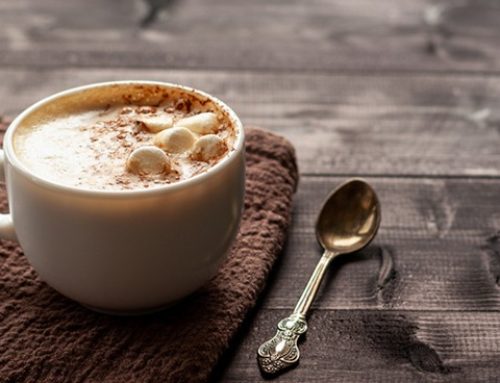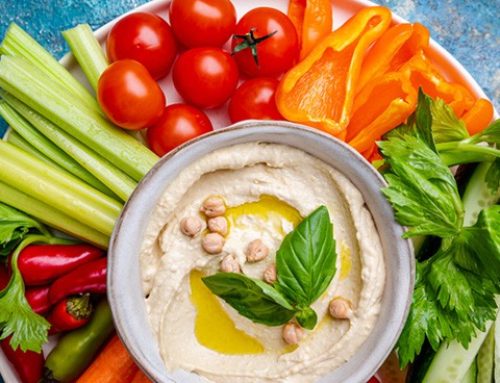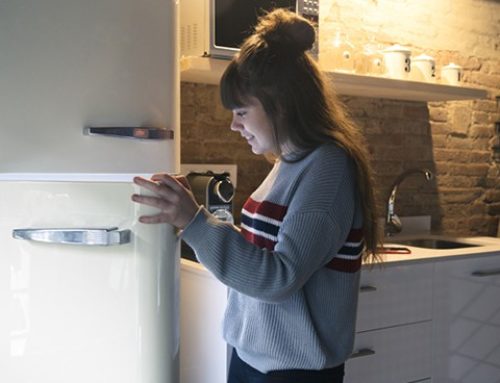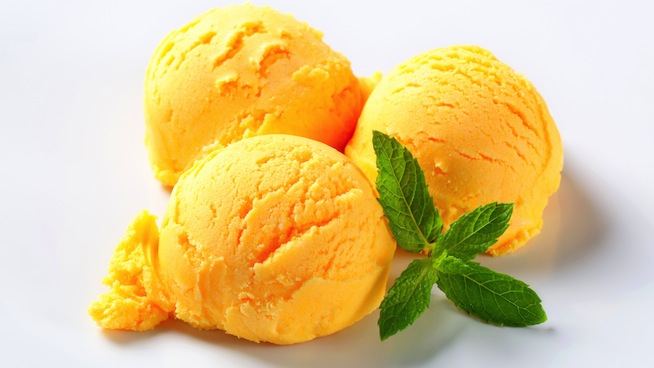Replace Your Sports Drink with This Homemade Recipe
![]()
Sports drinks have been marketed as a healthier alternative to sugar-filled sodas and fruit juices, but their chemical additives can be anything but healthy.
RELATED: Water or Sports Drinks: What to Drink When?
A quick look at the ingredient list of one popular sports drink—Water, Sugar, Dextrose, Citric Acid, Salt, Sodium Citrate, Monopotassium Phosphate, Gum Arabic, Glycerol Ester of Rosin, Natural Flavor, Yellow 5—is enough to make your head spin.
Instead, why not try making your own sports drink. Try this one out and use it before, during and/or after a workout to replenish yourself and jumpstart your recovery process.
Ingredients
- Coconut water – 30 ounces
- Pink Himalayan sea salt – ¼ teaspoon
- Lemon – ½ lemon, juiced
- BONUS – unflavored amino acids powder (1 serving)
Directions
- Mix all ingredients together. Shake or blend for 15-30 seconds.
That’s all there is to it!
RELATED: Are Energy Drinks Risky For Athletes?
I’ll be transparent: It may cost you a little more money to make the DIY version, but at least you can avoid sketchy ingredients. To me, it’s totally worth the extra buck to fuel my body with natural ingredients from trusted sources.
The DIY drink also has a better nutritional profile than the sports drink.
For a 32-ounce serving, the sports drink has 200 calories, 400 mg of sodium, 112.5 mg of potassium, 55 g of carbohydrates and 52.5 g of sugar. The DIY version also has 200 calories, but offers 680 mg of sodium, 1880 mg of potassium, 44 g of carbohydrates and 36 g of sugar.
RELATED: Is Chocolate Milk the Best Post-Workout Drink for Athletes?
Remember, sodium and potassium are vital for replenishing your electrolytes, and carbs are key contributors for priming your glycogen stores for muscle repair and future workouts.
The leading sports drink is sourcing these nutrients from sugar and chemicals, while the homemade version sources them from whole-food natural ingredients. For example, the commercial brand lists sugar as the second ingredient in terms of volume, after water. Dextrose, another sugar, is listed third. Not good.
On the other hand, the base of the homemade drink is coconut water, which has naturally occurring sugars because it is the water of a fruit.
Most of the sodium and all of the potassium are also naturally occurring in the coconut water, as opposed to the added electrolytes and preservatives in the store version.
It’s important to fuel your body for optimal health and lifestyle, rather than fueling it with potentially harmful things to maybe gain an edge in performance. In my opinion, a clean, machine-like body fueled by healthy food is always the best choice in the long run.
Try this drink at any time of day—ideally around your training session. If it’s something you’d like to sip on all day, maybe add another 94 ounces of water to the mix. That will give you a gallon to drink throughout the day.
[cf]skyword_tracking_tag[/cf]RECOMMENDED FOR YOU
MOST POPULAR
Replace Your Sports Drink with This Homemade Recipe
![]()
Sports drinks have been marketed as a healthier alternative to sugar-filled sodas and fruit juices, but their chemical additives can be anything but healthy.
RELATED: Water or Sports Drinks: What to Drink When?
A quick look at the ingredient list of one popular sports drink—Water, Sugar, Dextrose, Citric Acid, Salt, Sodium Citrate, Monopotassium Phosphate, Gum Arabic, Glycerol Ester of Rosin, Natural Flavor, Yellow 5—is enough to make your head spin.
Instead, why not try making your own sports drink. Try this one out and use it before, during and/or after a workout to replenish yourself and jumpstart your recovery process.
Ingredients
- Coconut water – 30 ounces
- Pink Himalayan sea salt – ¼ teaspoon
- Lemon – ½ lemon, juiced
- BONUS – unflavored amino acids powder (1 serving)
Directions
- Mix all ingredients together. Shake or blend for 15-30 seconds.
That’s all there is to it!
RELATED: Are Energy Drinks Risky For Athletes?
I’ll be transparent: It may cost you a little more money to make the DIY version, but at least you can avoid sketchy ingredients. To me, it’s totally worth the extra buck to fuel my body with natural ingredients from trusted sources.
The DIY drink also has a better nutritional profile than the sports drink.
For a 32-ounce serving, the sports drink has 200 calories, 400 mg of sodium, 112.5 mg of potassium, 55 g of carbohydrates and 52.5 g of sugar. The DIY version also has 200 calories, but offers 680 mg of sodium, 1880 mg of potassium, 44 g of carbohydrates and 36 g of sugar.
RELATED: Is Chocolate Milk the Best Post-Workout Drink for Athletes?
Remember, sodium and potassium are vital for replenishing your electrolytes, and carbs are key contributors for priming your glycogen stores for muscle repair and future workouts.
The leading sports drink is sourcing these nutrients from sugar and chemicals, while the homemade version sources them from whole-food natural ingredients. For example, the commercial brand lists sugar as the second ingredient in terms of volume, after water. Dextrose, another sugar, is listed third. Not good.
On the other hand, the base of the homemade drink is coconut water, which has naturally occurring sugars because it is the water of a fruit.
Most of the sodium and all of the potassium are also naturally occurring in the coconut water, as opposed to the added electrolytes and preservatives in the store version.
It’s important to fuel your body for optimal health and lifestyle, rather than fueling it with potentially harmful things to maybe gain an edge in performance. In my opinion, a clean, machine-like body fueled by healthy food is always the best choice in the long run.
Try this drink at any time of day—ideally around your training session. If it’s something you’d like to sip on all day, maybe add another 94 ounces of water to the mix. That will give you a gallon to drink throughout the day.
[cf]skyword_tracking_tag[/cf]










